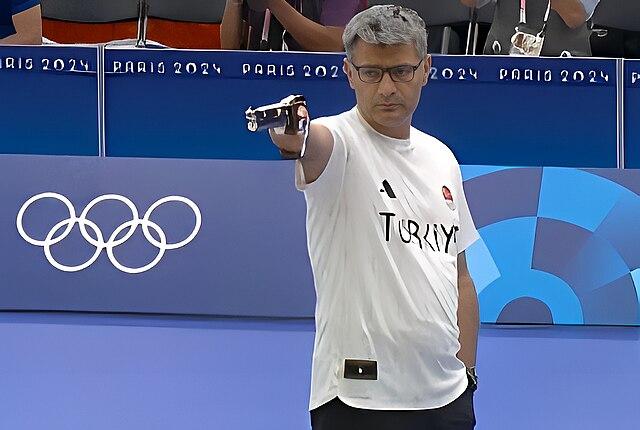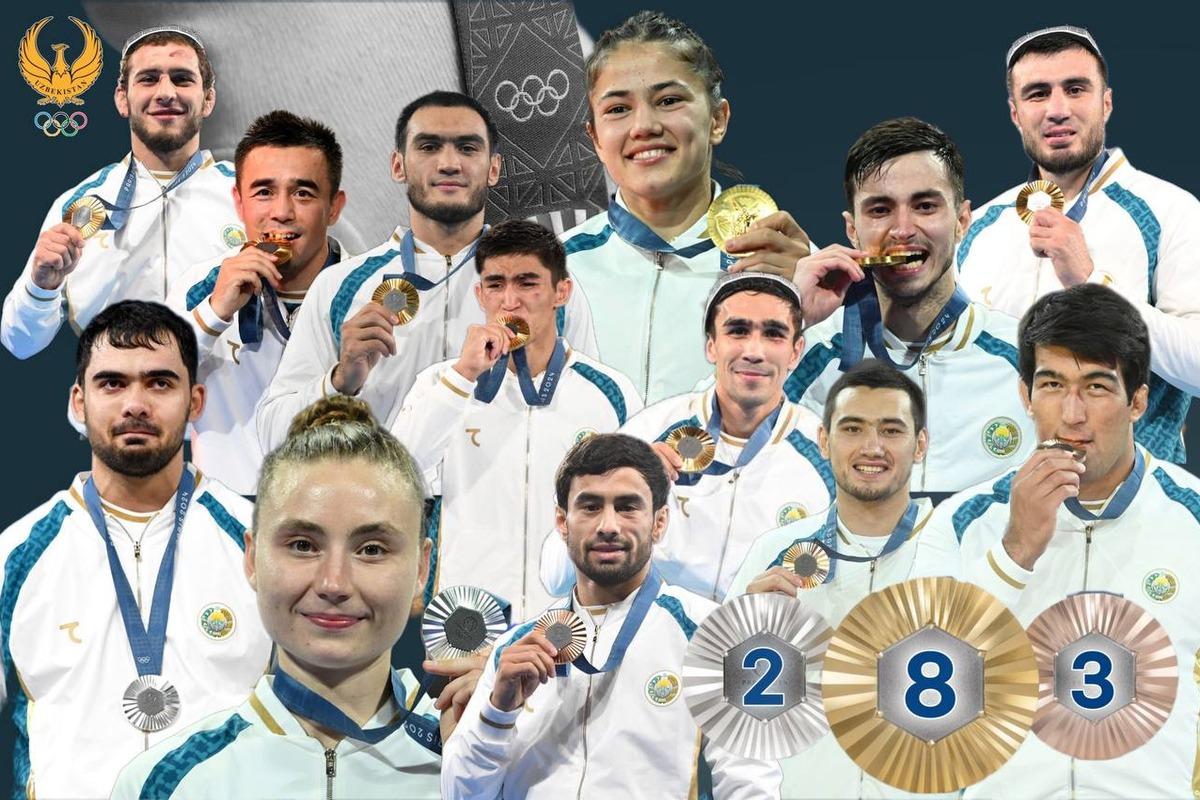Paris Olympics leave lasting impressions with historic achievements Records and Antirecords
The 33rd Summer Olympics (and the 30th, as the Games were not held in 1916, 1940, and 1944 due to wars) have become history. It’s a history that will be remembered for a long time—some with exhilaration, others with disappointment. No fan, athlete, or coach who experienced Paris 2024 will view these Games with indifference. After all, how can one ignore a tournament where 10,714 athletes from 206 countries competed for 329 sets of medals?
Nearly one-third (100) out of 329 gold medals awarded accounted for athletes from the top three countries in the overall medal standings: the US (40), China (40), and Japan (20). The US ranked first in the medal tally due to more silver medals (44) compared to China’s 27. The US athletes have topped the medal table in 19 out of 30 Summer Olympics, a record in itself. However, Paris fell short of the record for the number of countries winning medals—92 countries returned home with medals, compared to 93 countries during the Tokyo 2020 Summer Olympics.
Each medal measures 85 mm in diameter and is 9.2 mm thick. The gold medal from the 2024 Games weighs 529 grams, with 6 grams (1.13 per cent) of gold coating, 18 grams of iron, and 505 grams (over 95.4 per cent) of silver. The value of a gold medal is approximately $950 to $1,000. While it's uncertain what the bonuses will be, Azerbaijani judokas Hidayat Heydarov and Zelym Kotsoiev, have gained approximately 1,700 manats ($1,000) as a result of their achievements.
The silver medal from the Paris Games weighs 525 grams, composed of 507 grams of silver and 18 grams of iron. Its estimated value is around $500. The bronze medal, on the other hand, weighs 455 grams, consisting of 415.15 grams of copper, 21.85 grams of zinc, and 18 grams of iron. Its price is approximately $15.
The Games will be remembered not only for their expensive gold medals but also for the substantial costs incurred—France spent over 11 billion euros ($12 billion), despite an initial budget of 6.8 billion euros ($7.4 billion). This figure does not include the expenses for maintaining 45,000 police officers and soldiers during the events, nor 1.5 billion euros ($1.6 billion) allocated for cleaning the Seine (which, by the way, was not fully cleaned, and many athletes publicly complained about it). Of course, cutting corners on air conditioning and beds was not advisable.

Of course, the Paris Olympics will be remembered for its heroes. There were those who, in protest against the lack of air conditioning in athletes' rooms, slept outside—like Italian swimmer Thomas Ceccon, who won gold in the 100-meter backstroke. There were those who, despite not winning, captured hearts with their silver medals—such as Turkish shooter Yusuf Dikec, whose carefree shooting style became a meme even among many champions. There were those for whom this was their final Olympics, and despite all their accolades, they had yet to win gold—like Serbian tennis player Novak Djokovic, who, at 37 years old, had won 24 Grand Slam titles and 100 ATP tournaments but had never won an Olympic gold. The way Djokovic triumphed over Spanish tennis player Carlos Alcaraz in the final will be remembered by fans of this splendid kind of sports for a long time to come.

The Paris Olympics also etched names in gold into Olympic history, such as American Kevin Durant, who became the only basketball player to win four Olympic gold medals. Another standout was Mijaín López Núñez, who set an all-time record for wrestlers by winning gold at his fifth consecutive Olympics. Of course, there was legendary French judoka Teddy Riner, who claimed his second Olympic gold and increased his total count to five gold medals (three of which are from individual events).
How could one forget Swedish pole vaulter Armand Duplantis, 25, who not only became an Olympic champion for the second time by clearing 6.25 metres but also set a new world record in his kind of sports? Georgian weightlifter Lasha Talakhadze, a seven-time world champion became the first-ever three-time Olympic champion from Georgia at the age of 30, when weightlifters typically see their careers just beginning to peak.

Hasanboy Dusmatov, the Rio 2016 champion and Uzbek boxer, who, despite not qualifying for the Tokyo Olympics, didn’t give up. He continued training and proved himself the best once again in Paris, securing his second Olympic gold medal! Five out of the seven boxing champions in Paris were from Uzbekistan, and the country overall claimed eight gold medals.
Let's not forget team flag bearer, world champion, Uzbek boxer Abdumalik Khalokov, who not only became an Olympic champion in Paris but also served as a cornerman for his Kyrgyz opponent Munarbek Seiitbek Uulu throughout the tournament, guiding him all the way to the final. Isn't this a shining example of camaraderie and brotherhood among athletes from different countries? Ulugbek Rashitov, 22, who became a two-time Olympic champion in taekwondo in Paris. The first world champion in this kind of sports among the CIS countries was Azerbaijani athlete Niyamaddin Pashayev, back in 2001, just a year before Ulugbek was born.
In summary, these Olympic Games provided much information for thought, both in terms of organizing the tournament and achieving its goals.
Azerbaijani athlete, judoka Hidayat Heydarov is also among the winners. At the end of last year, Heydarov set a clear goal for himself: to win at the European Championships, World Championships, and the Olympics. He achieved this, becoming the first athlete in the history of Azerbaijani sports to accomplish such a championship hat-trick in a single calendar year!
By Vugar Vugarli
The views and opinions expressed by guest columnists in their op-eds may differ from and do not necessarily reflect the views of the editorial staff.








